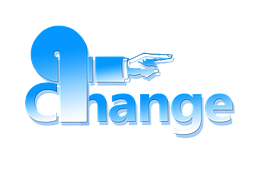
Fresh faced students, new graduates and seasoned practitioners alike, are forever reminding me of the challenge we experience as practitioners when it comes to instigating real change in our patients health related behaviours … the change we KNOW will make a difference to their health and wellbeing. ‘If only they actually listened to us!?!’ has been screamed by the novice and seasoned practitioner alike. With an overwhelming desire to share our wealth of knowledge, the discovery that information ≠ change can lead us to despair at times.
In a recent interview with Dr. Azita Moradi (Consultant Psychiatrist) as part of our Access the Experts webinar series, I was quite surprised (and pleased) to hear that Azita sometimes spends a whole session with a patient discussing the possibility of change, before even touching on the reality of change. Azita’s discussion surrounding the neuroscience of change and the challenges this may pose in the therapeutic relationship was fascinating, and certainly resonated with the practitioners taking part in the webinar. Azita’s interview was full of clinical gems reminding us that just as in other settings, if we give a man a fish he eats today but if we teach a man to fish we feed him for life. Hand and in hand with this, we need to have a strong understanding and appreciation of how to engage clients in making positive changes to their lives, often when it seems most difficult to do, such as in mental health patients.
Knowing how to improve behavioural change in patients generally, is integral to everyday practice, and its value cannot be underestimated.
I will never forget a very wise lecturer of mine 20 years ago saying, ‘never set a patient up to fail’. I was so struck by this because after my first reflexive thought of, ‘as if!’, I then realised how very likely this actually was.
If I don’t truly ‘see’ and recognise the stage of readiness for change my patient is at and therefore expect too much, if I encourage them to make change based on my ‘why’ not theirs or if I simply suggest too many changes at once- I have set them up to fail. We all have had experiences with failing at things – apart from evoking a sense of shame in relation to that person who expected us to be able to do the thing we can’t, it really sets up self-doubt about our capacity for success at related things. So in a nutshell, if we get these aspects of patient management around change wrong, the client hears, ‘I am clearly not cut out for this healthy diet/lifestyle/change stuff’. In the case of health and the therapeutic relationship, this can be very hard to overcome.
Azita’s interview talks about the role of motivational interviewing (and includes an outstanding resource tool for this) and a range of other techniques, such as finding the ‘why’, that help us to strengthen and hone our skills in this critical area. As integrative health professionals, often (mis)perceived as being ‘pure as the driven snow’, it is extremely important that we get this right so that patients don’t walk away with reinforced ideas that we are cut from one cloth and they from another or that we belong to some sort of mutant super species, while they are mere mortals!
If you missed this fantastic interview you can access it here as a download. If you were lucky enough to listen to Azita live but want more, you should check out this additional Update in Under 30 recording which delves into more detail around the transtheoretical model of behavioural change (identifying each stage of behavioural change and how to tailor our approach and advice to each) which makes a great companion resource to Azita’s interview.
Azita Moradi’s webinar “Solving the riddle of behavioural change in our patients: How to use neuroscience to help our clients change unhealthy behaviours & habits when it’s most difficult to do” and Rachel’s Update in Under 30 on “How to Improve Behavioural Change in Patients” will provide you with the understanding and tools to really make a change in your patient’s lives and your success as a clinician at effecting real change.
